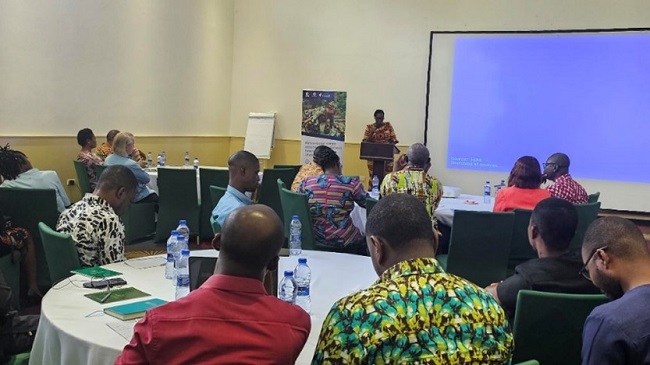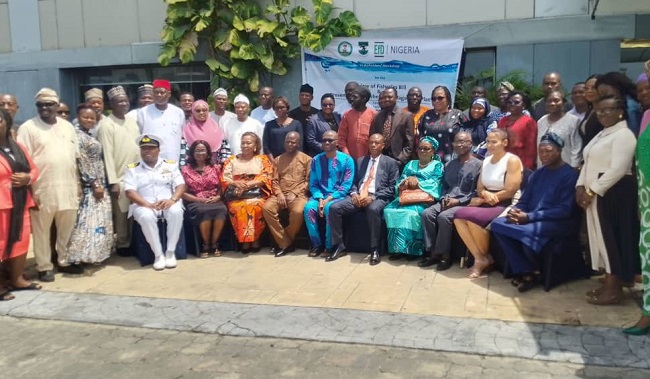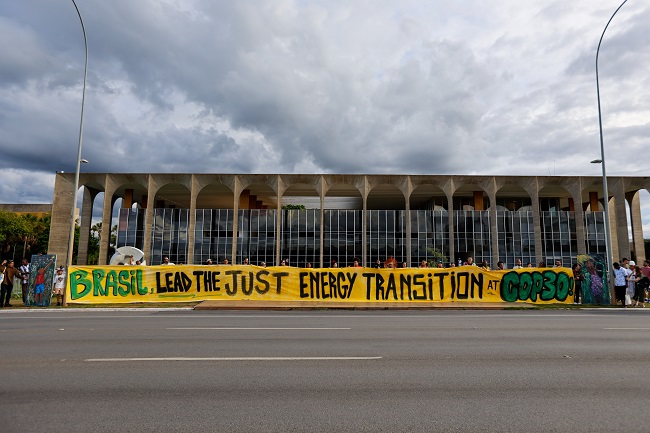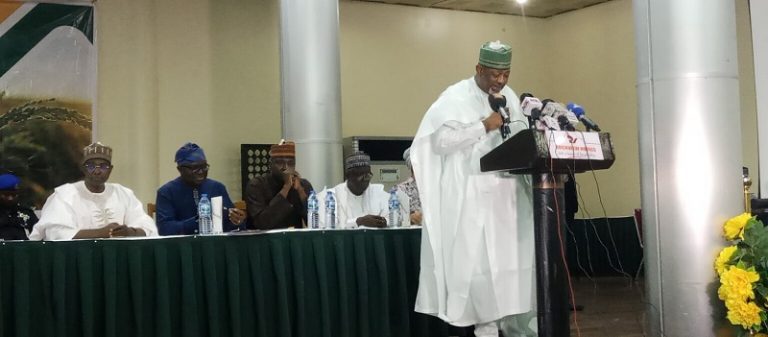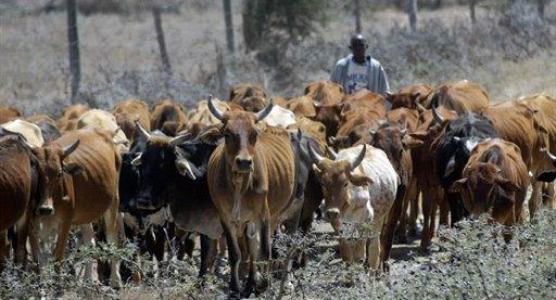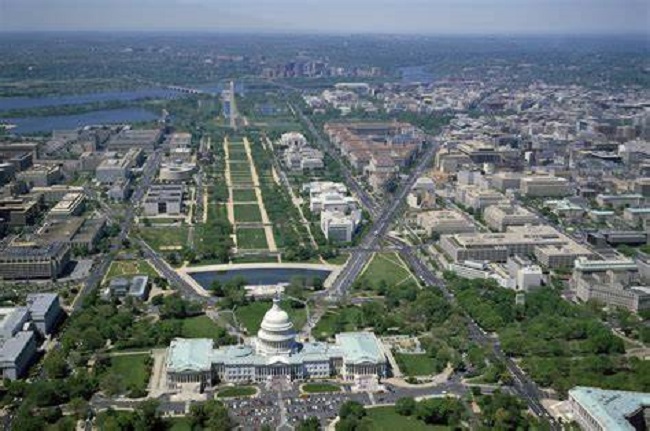The East African Crude Oil Pipeline (EACOP) faces more challenges as Chubb, one of the world’s largest fossil fuel insurers, confirmed it will not provide insurance coverage for the controversial project. This decision follows Chubb’s updated conservation policy from April 2024.

With this announcement, Chubb becomes the 30th major global insurer to refuse EACOP, joining a growing list of 43 banks and 29 other insurance firms who have also rejected financing the pipeline. The insurer’s updated conservation policy restricts underwriting new oil and gas projects in globally recognized protected areas—a category under which EACOP falls. This decision is the right step towards climate responsibility in an industry that has long avoided accountability in the fight against climate change.
“Chubb’s decision to exclude EACOP from its coverage is a win for people and the planet,” said Zaki Mamdoo, StopEACOP Campaign Coordinator. “Under the threat of climate and systems collapse, insurance should serve to protect communities from extreme weather events and should support resilient, locally rooted economies powered by socially owned renewables.”
EACOP is a 1,443-kilometre crude oil pipeline stretching from Uganda’s Kabaale and Hoima districts to the Tanzanian port of Tanga. It has been widely condemned for its devastating social and environmental impacts. These include the displacement of over 100,000 people, destruction of livelihoods, forced evictions, and alarming biodiversity loss – particularly in Murchison Falls National Park, a protected area where TotalEnergies is actively drilling.
“As someone who lost land and livelihood to this controversial project, I welcome this news from Chubb,” said Rachel Tugume, one of the EACOP-Project Affected People. “EACOP has brought only suffering – forced evictions, destroyed farms, and broken futures for our children. No amount of money can replace what we’ve lost, but seeing global companies reject this project gives us hope. The world is finally listening to our cries.”
Chubb’s decision means it will no longer underwrite projects in Murchison Falls or any of the conservation areas listed in the World Database of Protected Areas. This aligns with mounting international pressure on financial institutions to move away from high-risk, high-impact fossil fuel projects.
“We celebrate Chubb’s move to rule out insuring EACOP as a response to the serious community and climate risks associated with the controversial project,” added Ethan Nuss, Senior Campaigner with Rainforest Action Network. “Chubb has the potential to be a true climate leader by strengthening its policies to protect other frontline communities, like those on the US Gulf Coast, from the devastation of industrial fossil fuel projects.”
The #StopEACOP campaign is now challenging other major insurers – AIG, Liberty Mutual, Tokio Marine, Brit, and Chaucer – to follow Chubb’s lead. The firms were asked to choose between short-term fossil fuel profits and a just, climate-resilient future.
The campaign stated: “This is a pivotal moment for the insurance sector to step up. Across the EACOP route, communities are rallying behind the REpower Afrika campaign’s call for socially owned, decentralised renewable energy systems that meet people’s real needs.
“Insurance should enable this shift by prioritising development rooted in the region’s vast renewable energy potential – underwriting projects that expand access to clean healthcare, education, nutrition, decent work, and shelter.”
In a related development, over 70 civil society organisations (CSOs) from Uganda, Tanzania, the Democratic Republic of Congo, and beyond have published an open letter urging the Government of Oman to refrain from providing financial or diplomatic support for EACOP.
The letter comes amid reports that the Uganda National Oil Company (UNOC) is actively engaged in discussions with the Omani government to secure critical investment for the EACOP project, which has struggled to plug major funding gaps. The 1,443-kilometre pipeline, stretching from Uganda to Tanzania, has become a lightning rod for international criticism due to its links to ongoing human rights violations, widespread environmental damage, threats to water, food security and local economies, and its role in exacerbating the global climate crisis.
In their appeal to His Majesty, Sultan Haitham bin Tariq Al Said, and the Government of Oman, the CSOs highlight the opportunity for Oman to take a principled stand in line with its Vision 2040 strategy. They point to the Oman East Africa Trade and Investment Expo as a platform to advance responsible and future-focused partnerships, noting that the event “presents valuable opportunities for trade in key industries such as agriculture, manufacturing, clean energy, construction, technology, and consumer goods.”
The letter urges the Omani government “to engage with the Ugandan government and companies on these ethical and valuable opportunities, and to refrain from engaging with the oil sector.” The CSOs warn that supporting the East African Crude Oil Pipeline (EACOP) would not only undermine global climate goals but also contradict the foundational principles of Islamic finance, which uphold justice, social welfare, and the protection of life, wealth, and the environment.
“It would be a betrayal of trust and the strong historical ties between the government of Oman and the people of Uganda and the region if Omani financial institutions were to support this controversial project,” the letter states.
The signatories call on the Omani government to use its influence and investment capacity to champion a just energy transition in Africa — one that respects human rights, safeguards ecosystems, and enables lasting prosperity for communities on the frontlines of the climate crisis.
Specifically, the CSOs urge the Government of Oman to: publicly commit to refraining from financially or diplomatically supporting EACOP and related oil projects; redirect investments toward sustainable sectors such as renewable energy, sustainable agriculture, and eco-friendly infrastructure; and engage with East African nations on mutually beneficial trade and investment opportunities that align with global climate goals and uphold human rights.
They stress that, by prioritising ethical and sustainable investment, Oman can strengthen its global reputation and help foster long-term, climate-conscious economic partnerships with East Africa. A formal response from the Government of Oman is requested by April 20, 2025.

